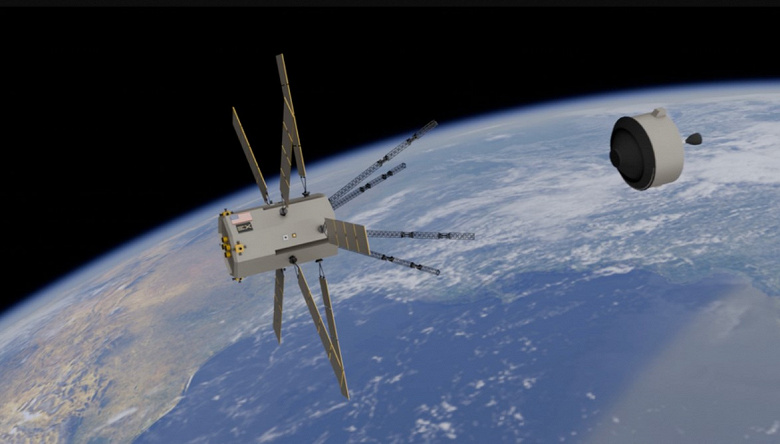ExLabs is preparing an ambitious mission to rendezvous with the asteroid Apophis in 2028
Exploration Laboratories — Space-focused startup will accelerate work on autonomous space acquisition technology with $1.9 million funding boost (TACFI) from SpaceWERX.
Southern California-based ExLabs announced a $1.7 million SpaceWERX Small Business Innovation Research contract for autonomous data acquisition technology in 2023. The additional $1.9 million, split between the government and private investors, «facilitates our transition to prototype development and testing of the ACQR platform, paving the way for its orbital test flight&rdash; said Matthew Schmidgall, CEO and co-founder of ExLabs.
ACQR — is an autonomous ExLab data capture and collection robot. ExLabs is also developing the Space Exploration and Resource Vehicle, or SERV, — a spacecraft designed to carry a payload of 30 metric tons in a fully collapsed configuration.
When SERV and ACQR unite, they «will be able to capture and control large objects in space», — Schmidgall said. «Long-term goal of ExLabs — provide the world's largest operational spacecraft to support asteroid search missions to exploit resources in cislunar space. In addition to stowing, transporting and delivering payloads, SERV will serve as a large-scale power base».
In civilian space, ExLabs plans to rendezvous with the asteroid Apophis in 2028 before it reaches Earth. During the mission, ExLabs intends to launch three cubesats into Apophos orbit. The mission is also intended to test systems and software for future campaigns to capture and move near-Earth asteroids into stable orbits for resource extraction.
ExLabs was founded in 2023 by Schmidgall, a former managing partner of Rocket Motorsports, and Miguel Pascual, a former senior systems engineer at Boeing. ExLabs staff includes Tom Cooley, former chief scientist at the Air Force Space Systems Research Laboratory, Dalibor Juran, former chief space engineer, and Keiko Nakamura, who worked for nearly 20 years at NASA and was a co-investigator on asteroid missions including & laquo;Hayabusa-2» and OSIRIS-Rec.

